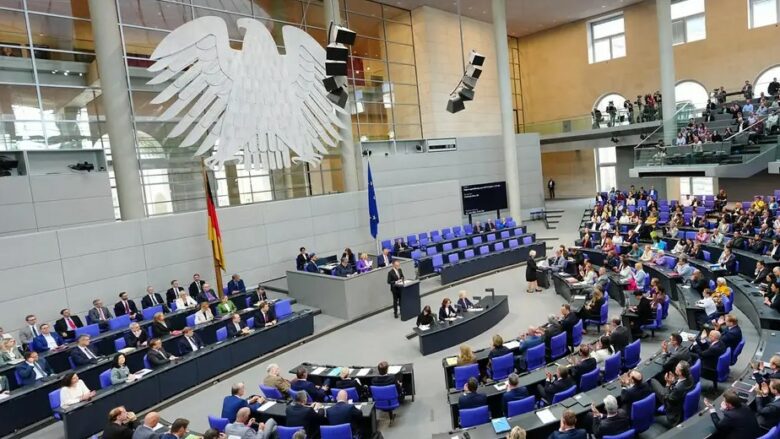Germany’s commitment to Kosovo remains strong, as the Bundestag voted on Thursday to extend the mandate of the German military mission as part of KFOR for another 12 months. With 391 votes in favor, 189 against, and only two abstentions, the German parliament confirmed the continuation of military engagement amid increased tension in northern Kosovo and new geopolitical challenges in the region.
Support for Kosovo’s Integration
In a half-hour debate, Johannes Volkmann, the grandson of German reunification Chancellor Helmut Kohl, spoke for the first time in the Bundestag. He called for full recognition of Kosovo and its membership in the Council of Europe, emphasizing that the 2003 promise of EU integration cannot remain a hostage to history.
Voices against the mission came from the far-right AfD party and The Left. Stefan Keuter (AfD) stated that “this is not our conflict” and deemed KFOR expenditures unnecessary. Deputy Gökay Akbulut from The Left argued that Kosovo needs schools and hospitals, not more troops.
From the center of the political spectrum, the SPD and The Greens supported the mission as a stabilizing force. Interior Minister Nancy Faeser (SPD) described the German presence as assistance for a democratic and multi-ethnic society, while Niklas Wagner from The Greens warned that a U.S. withdrawal from the region could create a dangerous vacuum that would be exploited by authoritarian actors.
Germany will be able to deploy up to 400 troops in Kosovo, with a mission to maintain security and assist in building democratic institutions. The German government confirmed its support for the transformation of the KSF (Kosovo Security Force) into a modern and democratically controlled force, as preparation for Kosovo’s membership in NATO and the EU.
German Foreign and Migration Policy Shifts
Meanwhile, Chancellor Friedrich Merz sided with the U.S., calling for a ceasefire after the bombings in Iran. On another policy front, he joined the alliance of right-wing leaders, led by Italian Prime Minister Giorgia Meloni, who are advocating for stronger controls on illegal migration. The Bundestag approved a bill to suspend family reunification for refugees with limited protection, marking a significant shift in Germany’s migration policy.
Albania-Germany Relations Highlighted
Against the backdrop of these developments, the AfD party has requested that the government investigate whether there were manipulations in the recent elections in Albania. Additionally, a school in the heart of Berlin proudly bears the name of an Albanian – symbolizing the enduring cultural ties between the two countries.







